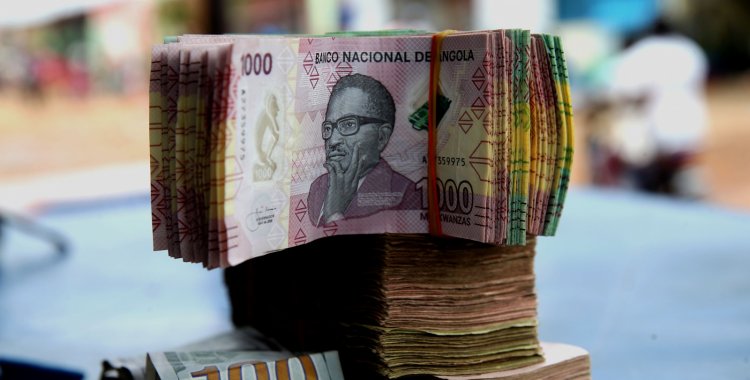Vendors and consumers say that, in a year of pandemic, the prices of the main consumer products, especially those of the basic basket, skyrocketed by more than 100 percent, "pray" for the end of the pandemic and express nostalgia for the pre-covid time-19 .
The sellers say that since the first case of covid-19 was notified in Angola, on March 21, 2020, prices have always been on an upward trend and the restrictions on the mobility of people and vehicles across the interior of the country and vice versa has worsened their condition, thereby reducing their income.
"Sales are a little difficult, business is not going. In my case, I return home for days as I leave," he told Lusa Maria da Conceição, a seller of household items, glasses, plates, bowls, at the Kwanza market .
Three cups, which were sold at the price of 1000 kwanzas before the pandemic, are now sold at 1,500 kwanzas and Maria da Conceição admits that covid-19 had a direct implication in current prices.
The situation worsened with the absence of customers, many of whom were "stranded" within the country. "Because buyers often came from other provinces. Now, as travel is limited, things are stopped. By day, sometimes, I have only one customer and there are days that I don't even have customers," she lamented.
At the Madalena Manuel António stand, also in the Kwanzas market, Cazenga municipality, in Luanda, a liter of oil is being sold between 1300 kwanzas and 1500 kwanzas, twice the previous price, while for the kilogram of beans the price " tripled".
"Before, the liter of oil was 500 kwanzas and 600 kwanzas, now it is 1,500 kwanzas. The kilo of rice was 250 kwanzas and now it is 550 kwanzas, the beans were 350 kwanzas and now it is 1200 kwanzas", he said.
This seller recognizes that prices "have risen a lot" and, as a result, customers have also declined, who complain about high prices and the "weak purchasing power" that their wages allow them.
"On this bench, I can sell a daily value of up to 15,000 kwanzas, but not enough to replenish the business, because the demand is low", she lamented.
Much of the slaughtered meat that is sold on the Kwanza market comes from the interior of Angola. The sellers also pointed out the "scarcity" of the product due to mobility restrictions, at the level of vehicles and people, since the capital has been under a sanitary fence imposed by the authorities since last May, aiming to stop the spread of the covid-19.
"Our business [live animals] comes from the interior of the country, we depend on travelers, but few cars are now circulating and, therefore, prices are high," Judite António, a trader for five years, told Lusa.
According to the seller, in her last year of commercial activity, during the pandemic, sales dropped considerably, due to lack of customers. In contrast, the prices of each piece of meat have increased.
"We sold the pieces between 1000 kwanzas and 1500 kwanzas, before the pandemic we sold the piece at 500 kwanzas, the offal 200 kwanzas, but now we are selling 500 kwanzas", she noted.
Suppliers of spirits changed prices and retailers, in search of profit, also raised prices in the market, as saleswoman Rute Dionísia informed, lamenting the "evils of the pandemic" in her craft.
"Quite agastado" with the current prices practiced in the different markets of Luanda is the retired Beto Serrote, 67 years old, considering that the prices rose in the ratio of 300 percent, mainly due to what he classified as "bad economic policies of the Government".
"I always spent less, but not now, now I spend more than my salary and sometimes I even starve. It was good to review the country's economic policy so that prices would go down," he defended.
For this consumer, Angola "needs serious leaders" in order to reverse the current situation: "Before the pandemic it even paid off, but afterwards things started to skyrocket", he shot.
Last year, inflation rose to 22.3 percent from 17.1 percent in 2019, according to the consultancy NKC African Economics, which forecasts a 22.4 percent price hike this year, down to 14.5 percent. percent in 2022.







